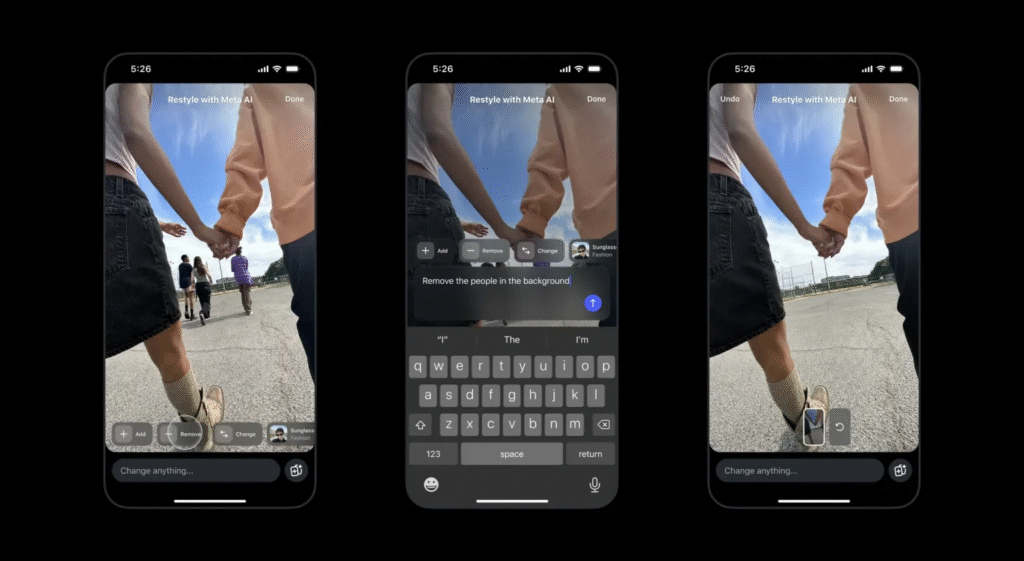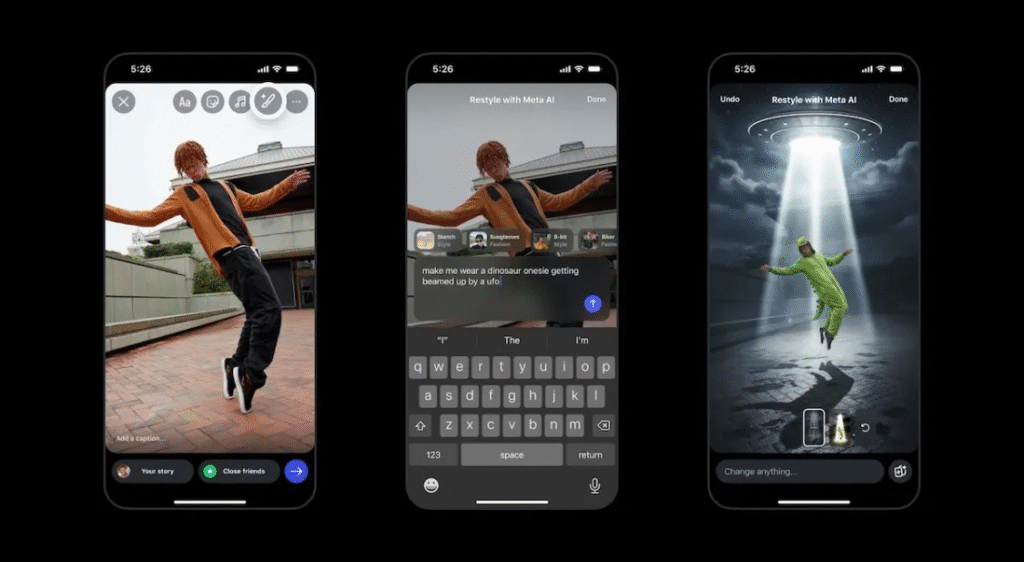Microsoft has made significant strides in expanding the availability of Bing.com with Bing AI to a wider audience. Initially exclusive to Microsoft Edge users, Bing AI, powered by the advanced ChatGPT-4 language model, is now being rolled out to other browsers, including Google Chrome and Apple’s Safari.
Windows 11’s Bing AI Expands
Users have started receiving pop-ups on their Windows 10 or 11 taskbars, offering them the opportunity to try Bing AI in Chrome. Notably, this version of Bing AI also comes with native dark mode support, similar to the one present in Microsoft Edge. The dark mode provides a sleek black background that matches the aesthetic of Edge’s dark theme.

Within Bing.com, users can easily switch between light and dark themes through the hamburger menu, and there is even a system default option that automatically aligns with the operating system’s preference.
However, it’s worth mentioning that Microsoft has imposed some limitations on Bing Chat capabilities in Chrome. Unlike Edge, which allows up to 30 messages per conversation and 4,000 characters per message, Chrome’s Bing AI is currently limited to five messages per conversation and 2,000 characters per message. Additionally, users may notice prompts encouraging them to explore Bing AI in Edge when accessing it through Google Chrome.
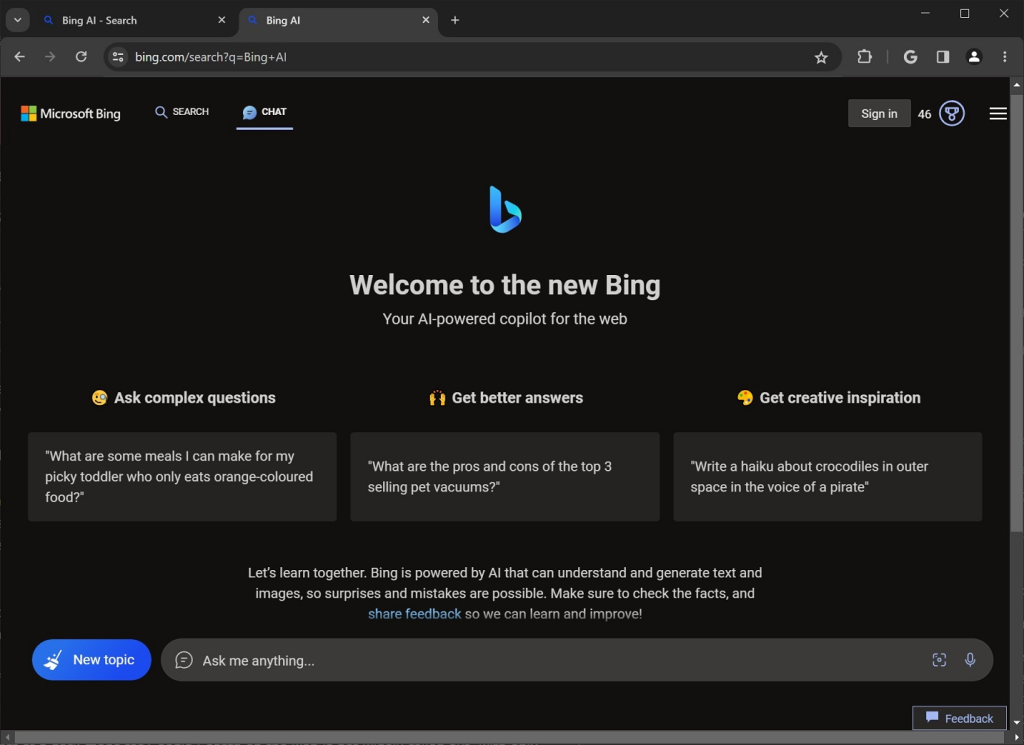
Microsoft is continuously working on improving Bing AI’s capabilities. One notable upcoming feature is “No search” or “ChatGPT-like mode,” which aims to enhance user interaction with Bing AI. Currently, Bing AI relies on traditional web searches to answer user queries, which can sometimes lead to less human-like responses. However, with the “No search” mode, Bing AI will rely more on its AI capabilities, similar to ChatGPT, and provide responses directly from its knowledge base rather than crawling the web for answers.
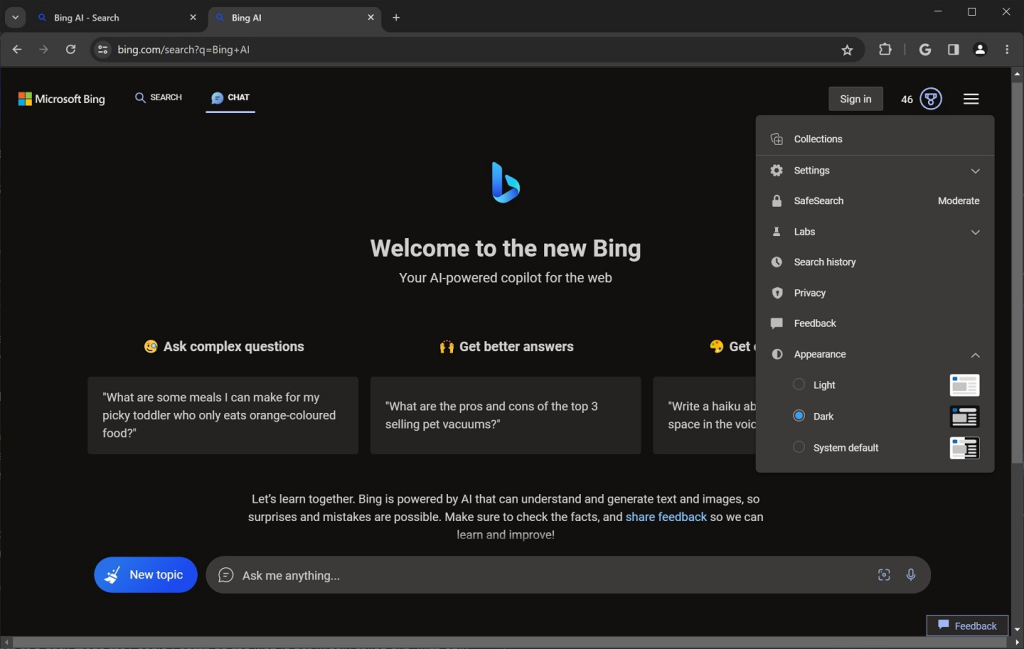
Recently, Microsoft updated Bing AI with visual search, incorporating OpenAI’s image recognition technology. This enables Bing AI to interpret and describe images, providing relevant answers and information related to the visual content.
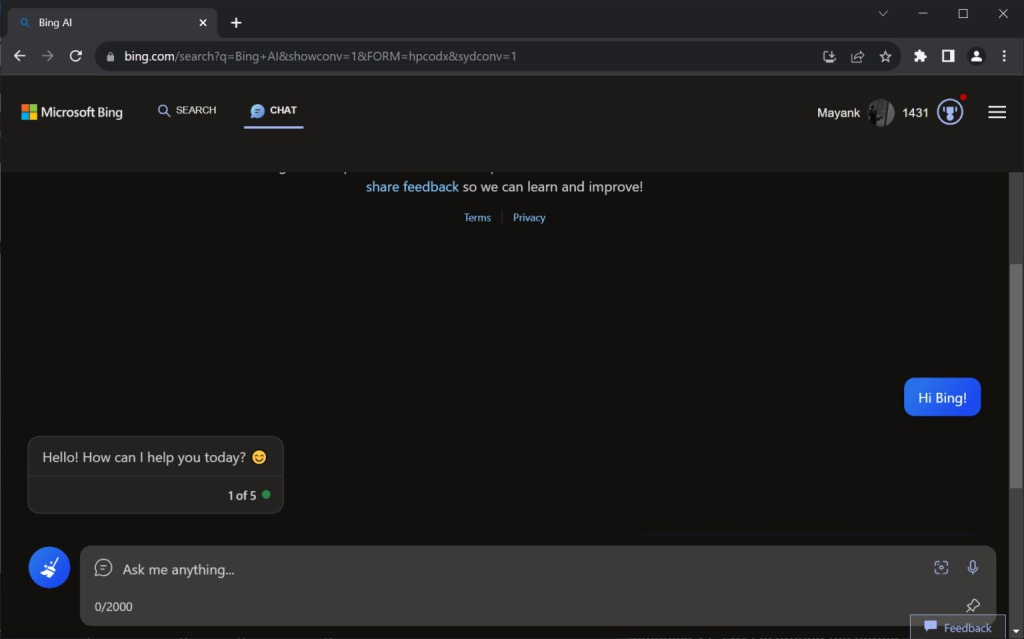
It’s essential to note that Bing AI’s support for all browsers is still being gradually rolled out and is currently accessible to select users. However, according to a Microsoft source, Bing AI will become available in Chrome and Safari for everyone in the coming days or weeks.
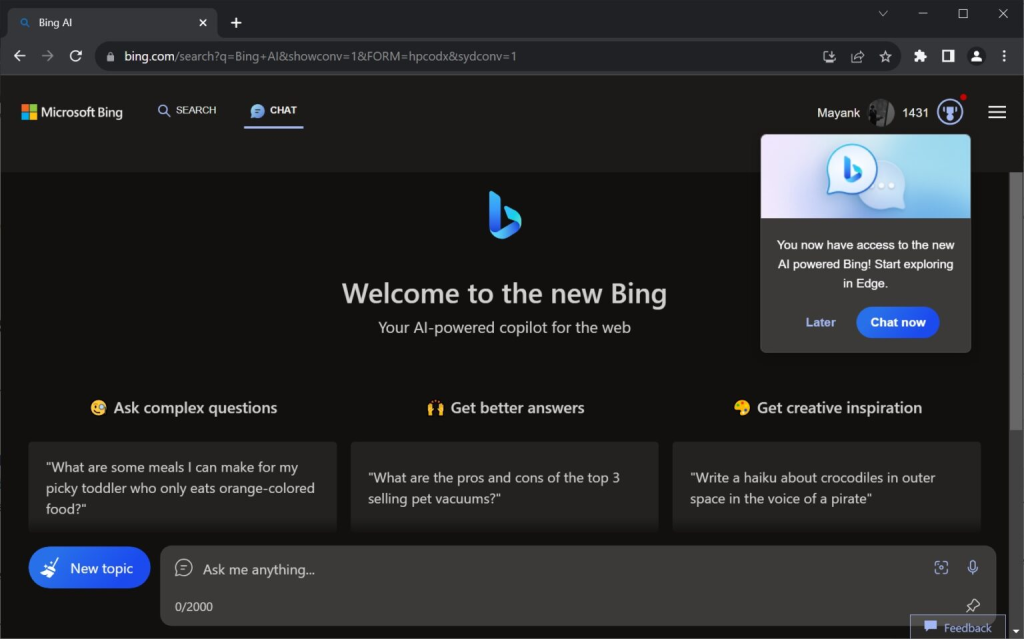
Despite these advancements, Microsoft ensures that Bing will continue to be free for users, while the enterprise edition of Bing will operate independently, catering to specific business needs.
In conclusion, Microsoft’s efforts to expand Bing AI’s availability and introduce new features like “No search” and visual search show its commitment to enhancing user experience and providing a powerful and efficient AI-driven search engine.






